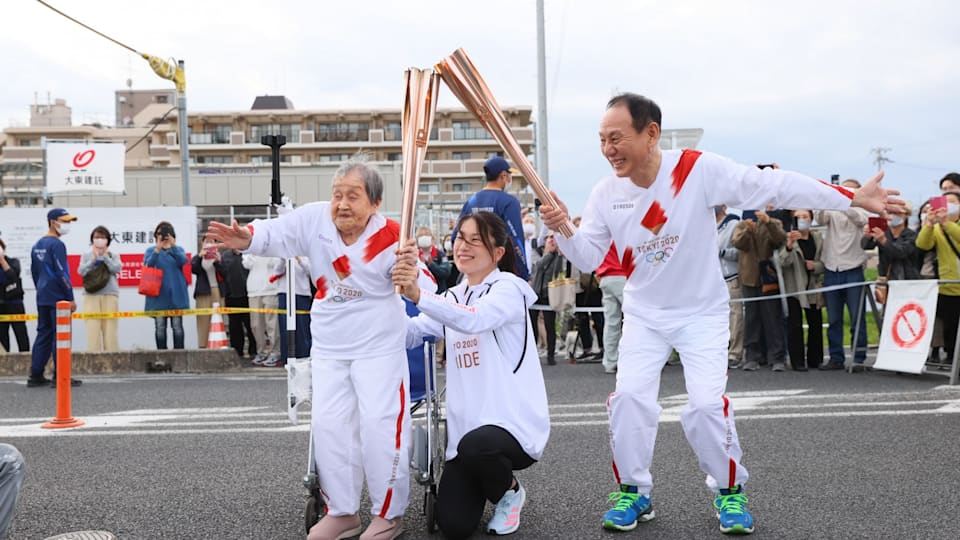109-year-old carries Olympic torch through hometown
KAGAWA Shigeko has lived through five eras and pledged last year to "see and participate in the Tokyo Olympics" which begin in July 2021

The Olympic Torch Relay is often filled with emotional moments. This Monday (12 April) in Nara Prefecture - a location that is home to historic treasures such as the Kinpusenji Temple - a moment occurred that may just have been the most beautiful of the relay so far.
KAGAWA Shigeko, a 109-year-old grandmother who was born in 1911, ran with the flame through the streets of Nara. Throughout her long and fruitful life, Kagawa has devoted herself to her community, working as a doctor in the areas of obstetrics and gynecology. She was accepted as a torchbearer after her granddaughter wrote a poignant letter to the organisers that read:
“My grandmother, who saved many lives and contributed to the community, is working hard every day and says that she really wants to see and participate in the Tokyo Olympics. Please make this 109-year-old’s dreams come true.”
Kagawa has overcome many difficult moments in her life. As she herself explained: “Since the Spanish flu epidemic when I was a child, I have witnessed the fight against various infectious diseases during my 109 years of life. As a female doctor, I also worked hard to treat cholera.”
But Kagawa, who has lived through no less than five eras in Japan (Meiji, Taisho, Showa, Heisei and Reiwa), wants to spread a positive message:
“I will never forget the joy and excitement I shared with mothers and their families as we welcomed new life into the world during these turbulent times,” she said.
As Kagawa made the effort to stand while completing a “torch kiss pose”, she not only realised her Olympic dream but also passed on many generations-worth of passion and best wishes.
“As a torchbearer, I would like to express my gratitude for the long and healthy life that I am able to lead in this new era of harmony, and for the support of the local community,” she concluded.
